Joint statement welcoming judgement on Russia’s failure to protect the privacy of personal data
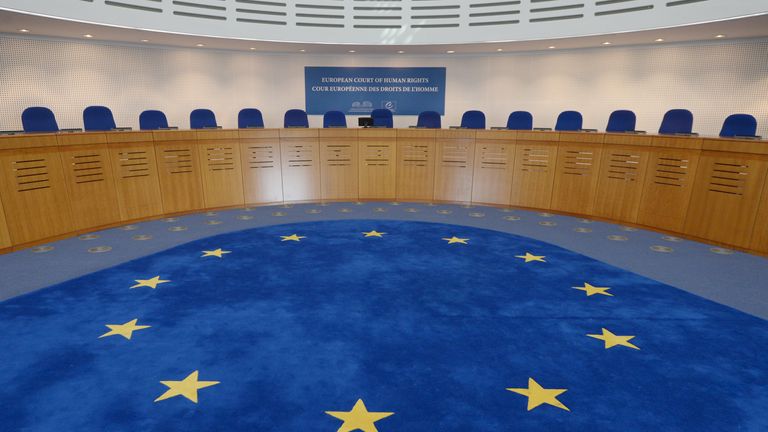
ILGA-Europe and the AIRE Centre welcome the judgement from the European Court of Human Rights in the case of Bazhenov and others v. Russia
Last week, in the case of Bazhenov and others v Russia, the European Court of Human Rights found a violation of Article 8 (right to private and family life) together with Article 14 (prohibition of discrimination) ECHR.
The applicants in this case are a lawyer who provided assistance in a number of high-profile criminal cases related to hate crimes against individuals, and a same-sex couple. The case concerns the disclosure of the applicants’ personal data, including their names, addresses and information about their sexual orientation, on openly homophobic public pages on social networks.
The applicants argued that this exposed them to elevated risks of harassment and made them fear for their lives and health, for the safety of their relatives and employees and for their professional activities. As such, they complained that the national authorities failed in their obligation to ensure effective respect for their private lives (Article 8 ECHR) and protect them from discrimination (Article 14 ECHR). They also complained under Article 13 ECHR that they had no effective remedy as the authorities failed to open a criminal case and conduct an effective investigation to respond adequately to those homophobic incidents.
Sharing of personal information should be a personal choice
ILGA-Europe together with the AIRE Centre submitted a third-party intervention in this case, stating that the sharing of personal information, including sexual orientation, should be an individual’s choice and that there should be safeguards to prevent the disclosure of such personal data. Moreover, national authorities have a positive obligation to conduct an effective investigation into an alleged interference with an individual’s private life, and a person’s sexual orientation should form part of the authorities’ considerations. Finally, we provided an analysis of the risks of discrimination, convictions by authorities and hate crimes that LGBTI individuals face through the non-consensual sharing of information and personal data.
The Court found that the authorities had indeed failed to offer adequate protection in respect of the applicants’ private lives and to protect them from discrimination. Importantly, the Court considered that “the domestic authorities were confronted with prima facie indications that the (…) disclosure of the applicant’s private data without their consent, including information about their sexual orientation, were driven by discriminatory attitudes against LGBTI community”. The Court found that this required an “effective investigation capable of elucidating the homophobic motive behind the breach of the applicants’ privacy and of identifying and, if appropriate, adequately punishing those responsible”.
A particularly vulnerable group, needing heightened protection
Furthermore, the Court recalled that “gender and sexual minorities require special protection from hateful and discriminatory speech because of the marginalisation and victimisation to which they have historically been, and continue to be, subjected.” It noted in this respect that the Russian LGBTI community can be regarded as a particularly vulnerable group, needing heightened protection from stigmatising statements.
Therefore, the Court ruled that domestic authorities had failed to discharge their positive obligation to respond adequately to the non-consensual dissemination of the applicants’ private data, including the information on their sexual orientation, by private individuals, and to investigate in an effective manner whether the dissemination of the data in question had been motivated by homophobic attitudes.
Welcoming the judgement, ILGA-Europe’s Senior Strategic Litigation Officer, Marie-Hélène Ludwig said: “This is a strong judgment in which the Court makes clear that States have a positive obligation to ensure respect for the right to private life, even when this concerns relationships between individuals. We welcome the Court’s observation that preventing and investigating the non-consensual dissemination of private data on one’s sexual orientation is particularly important in view of the vulnerability and risks faced by the LGBTI community in Russia at the moment.”
Last week, the Court also found violations of Article 8 (right to respect for private and family life) and Article 10 (freedom of expression) ECHR in the case of Klimova and Others v. Russia. The case concerned the applicants’ convictions for an administrative offence and/or the blocking of access to their websites or webpages on social networking sites, including one of the oldest and largest LGBTI websites in Russia, for “promoting homosexuality among minors”. The Court concluded that there was an interference with the applicants’ right to freedom of expression. One of the applicants also complained that the security services collected user data related to her personal social networking account and to the social networking community administered by her. The Court found that this amounted to an interference with the applicant’s right to respect for her private life.
Russia failed to respond adequately to politician’s homophobic verbal assault, European Court finds
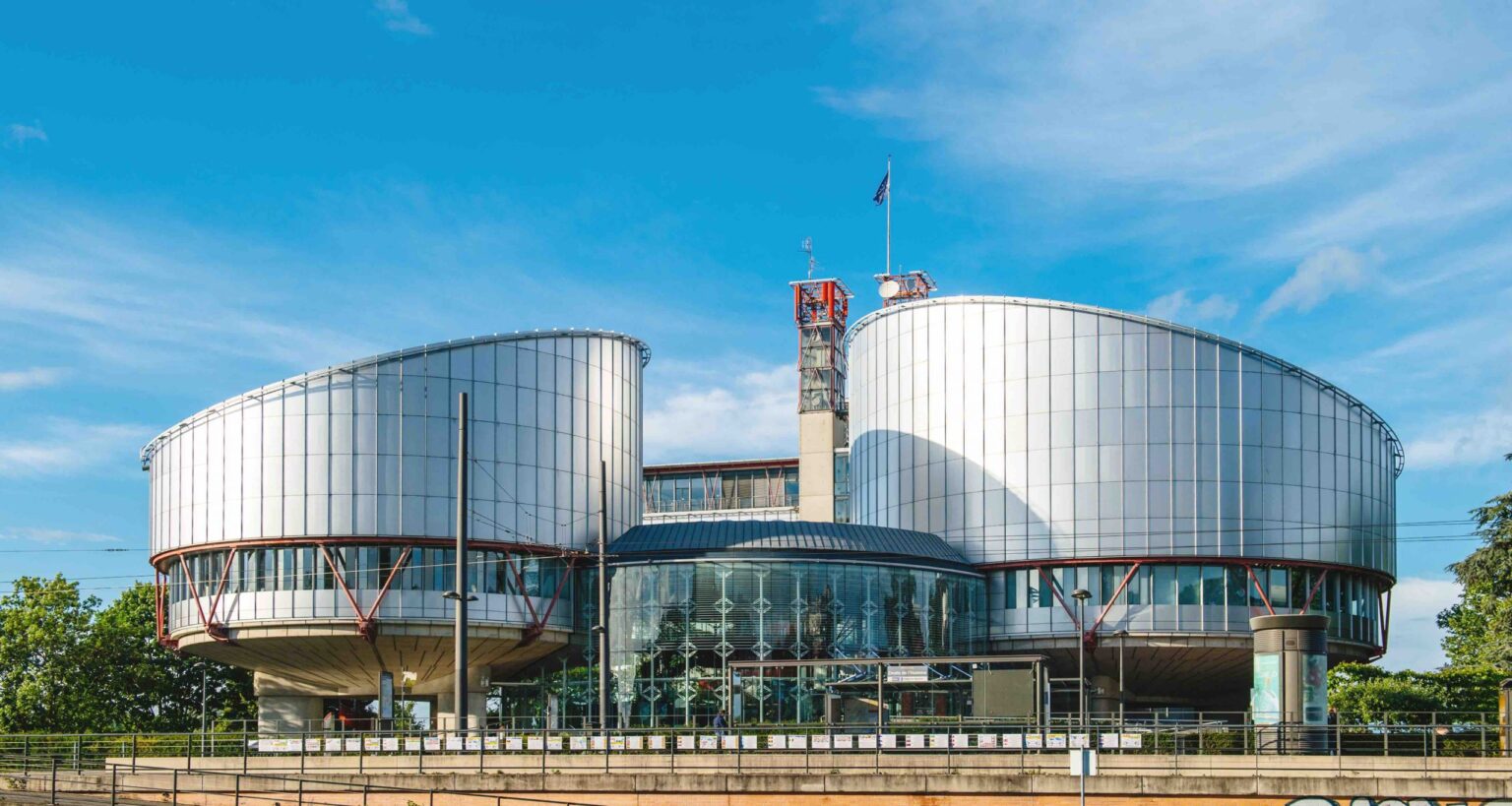
The European Court of Human Rights has found that Russia’s failure to respond adequately to homophobic verbal assault and physical threats by a politician against LGBTI activists is in breach of their human rights.
Last week, in case Yevstifeyev and others v. Russia, lodged by victims of homophobic hate speech in Russia, the European Court of Human Rights found a violation of Article 8 of the European Convention on Human Rights (right to private and family life), together with Article 14 (prohibition of discrimination).
The applicants are LGBTI rights activists who participated as part of the LGBTI column in a rally against hatred in St Petersburg where they had to face homophobic insults and physical threats from a well-known politician and member of the St Petersburg Legislative Assembly, who attended the rally. He also spread false information concerning the applicants.
The applicants lodged criminal complaints but the authorities refused to register them, claiming the politician had allegedly merely expressed his personal opinion about the LGBTI community. The applicants also lodged an administrative offence complaint and a civil complaint, which were dismissed on the grounds that the statements did not amount to insult, as they were not directed against specifically named individuals.
The Court first confirmed that the applicants had been directly targeted by the verbal assault and that the statements at issue affected their psychological well-being and dignity, and therefore fell within the sphere of their private life.
As to the authorities’ refusal to register the criminal complaints, the Court found that the domestic authorities had failed to strike a fair balance between the applicants’ rights to respect for their private life and to be protected from discrimination on the ground of sexual orientation on one hand, and the public interest in protecting freedom of expression on the other hand.
Turning to the administrative complaint, the Court found that the domestic authorities did not provide relevant and sufficient reasons for dismissing the administrative complaints. Lastly, as regards the civil proceedings, the Court ruled that, by finding that the applicants were not affected by the contested statement, the civil courts had failed to acknowledge the applicants’ rights to respect for their private life and to protection from discrimination on the ground of sexual orientation. The Court made clear that, contrary to the civil courts’ rulings, the politician’s statements could not be construed in a neutral way and were openly homophobic, had been particularly aggressive and hostile in tone, and included physical threats against the participants in the rally.
As a result, the Court concluded that the domestic authorities failed to comply with their positive obligation to respond adequately to the verbal assault and physical threats motivated by homophobia directed against the applicants. It recalled its previous ruling that “failure to address such incidents can normalise hostility towards LGBTI individuals, perpetuate a culture of intolerance and discrimination and encourage further acts of a similar nature.” The judgment can be accessed here.
Joint statement: Kazakhstan risks further affiliating with Russia after MP requested to ban a leading LGBTI human rights group as “extremist”.
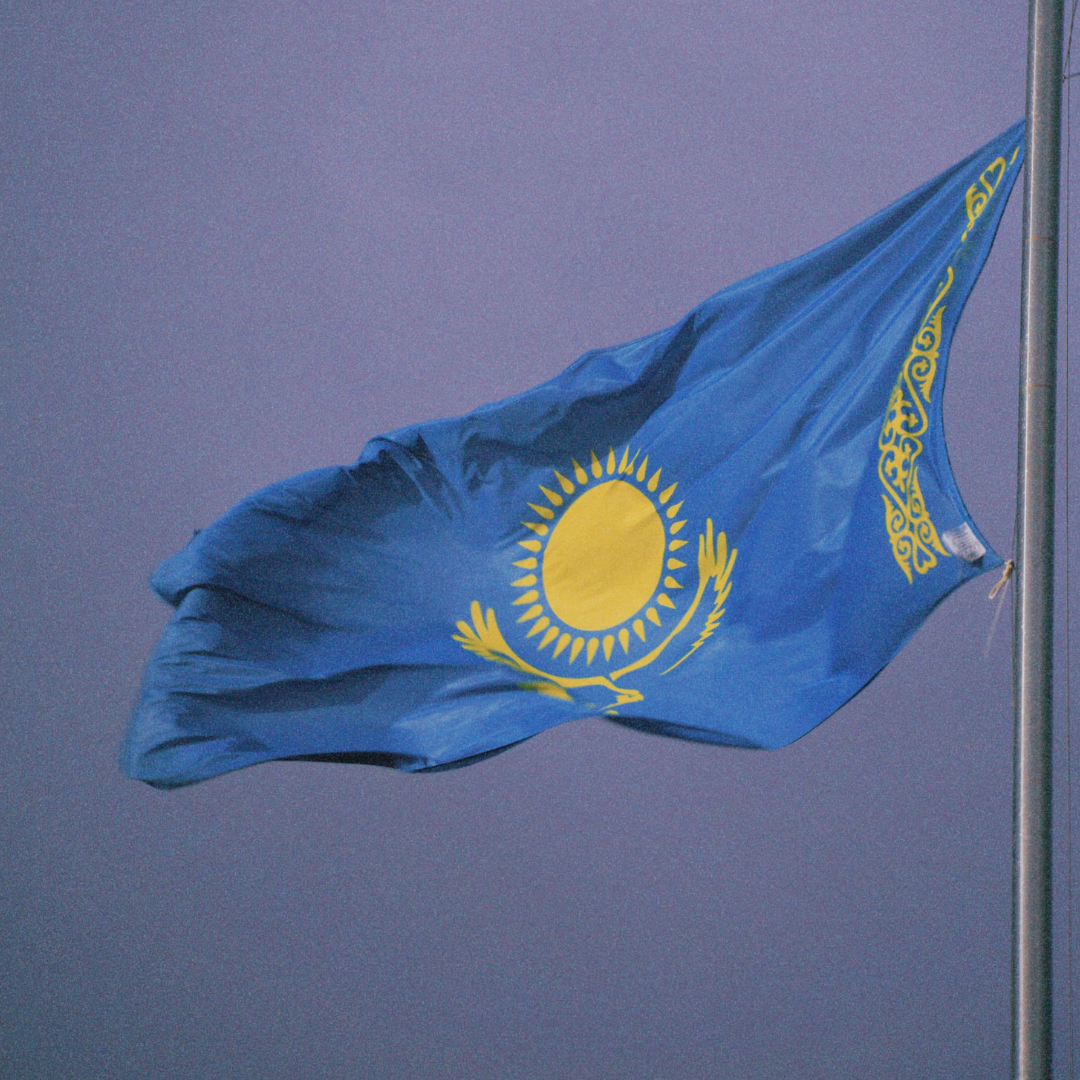
The recent initiative of a Member of Parliament of Kazakhstan to designate as “extremist” and ban an LGBTI civil society organisation, violates Kazakhstan’s human rights obligations and further affiliates it with Russia.
On 9 October 2024, Mr Rinat Zaitov, a member of the Parliament of Kazakhstan, speaking on behalf of the ruling party Amanat, formally requested the government to declare a leading LGBTI civil society organisation as extremist, which would lead to prohibition on its operation and the penalisation of its staff. This happened after a group of pro-Russian radical activists led by Bagila Baltabayeva, the leader of the Kazakhstan Union of Parents, stormed a private event organised by the feminist group Feminita for the LGBTI community in Almaty, Kazakhstan.
Baltabaeva and her group attempted to enter the venue where Feminita was holding the event and disrupt it. Earlier this year, the same group pushed for the petition to ban so-called “LGBT propaganda”, the public support of which was, according to independent sources, allegedly orchestrated by Kazakh officials. At the same time, Kazakhstan has been gradually introducing scrutiny on civil society organisations which are reminiscent of so-called “foreign agents” laws.
Political influence from Russia
State-facilitated violence against civil society activists and scapegoating of LGBTI people is part of the broader set of tools that also includes so-called ‘LGBT propaganda” laws and “foreign agents” laws. Such legislative attacks against human rights defenders protecting LGBTI individuals have a negative impact on the European Union, destabilising it by supporting claims from radical political forces within the EU.
The Government of Kazakhstan must not follow the path, which Russia and its allies have chosen in recent years. We call the Government of Kazakhstan not to declare Feminita or any civil society organisation supporting LGBTI people as extremist, and to duly protect civil society organisations from attacks from third parties, as well as to focus on actual public concerns.
We call on the European Parliament to unequivocally condemn this attempt to ban legitimate human rights activism, as well as any similar initiatives to use anti-extremist legislation against human rights defenders and civil society organisations.
We call on the European Commission to ensure that it is consistent with its own principles and values when cooperating with Kazakhstan’s government and that international commitments on human rights violations are respected across the board. In the event that Feminita or any other civil society organisation supporting LGBTI people is declared ‘extremist’ in Kazakhstan, we believe the European Commission will exercise continuity and that the new sanctions framework against Russia’s destabilising actions abroad will be fairly applied in a similar manner. We specifically call the European External Action Service and the EU Delegation to inform the Government of Kazakhstan about the potential consequences of such actions.
ILGA-Europe
Outright International
LSVD⁺ – Verband Queere Vielfalt
Hirschfeld Eddy Foundation
FRI – The Norwegian Organisation for Sexual and Gender Diversity
The Council for Global Equality
LGBT+ Denmark
Joint Statement welcoming European Court ruling that Russia’s trans parent’s foster-care termination violates family rights
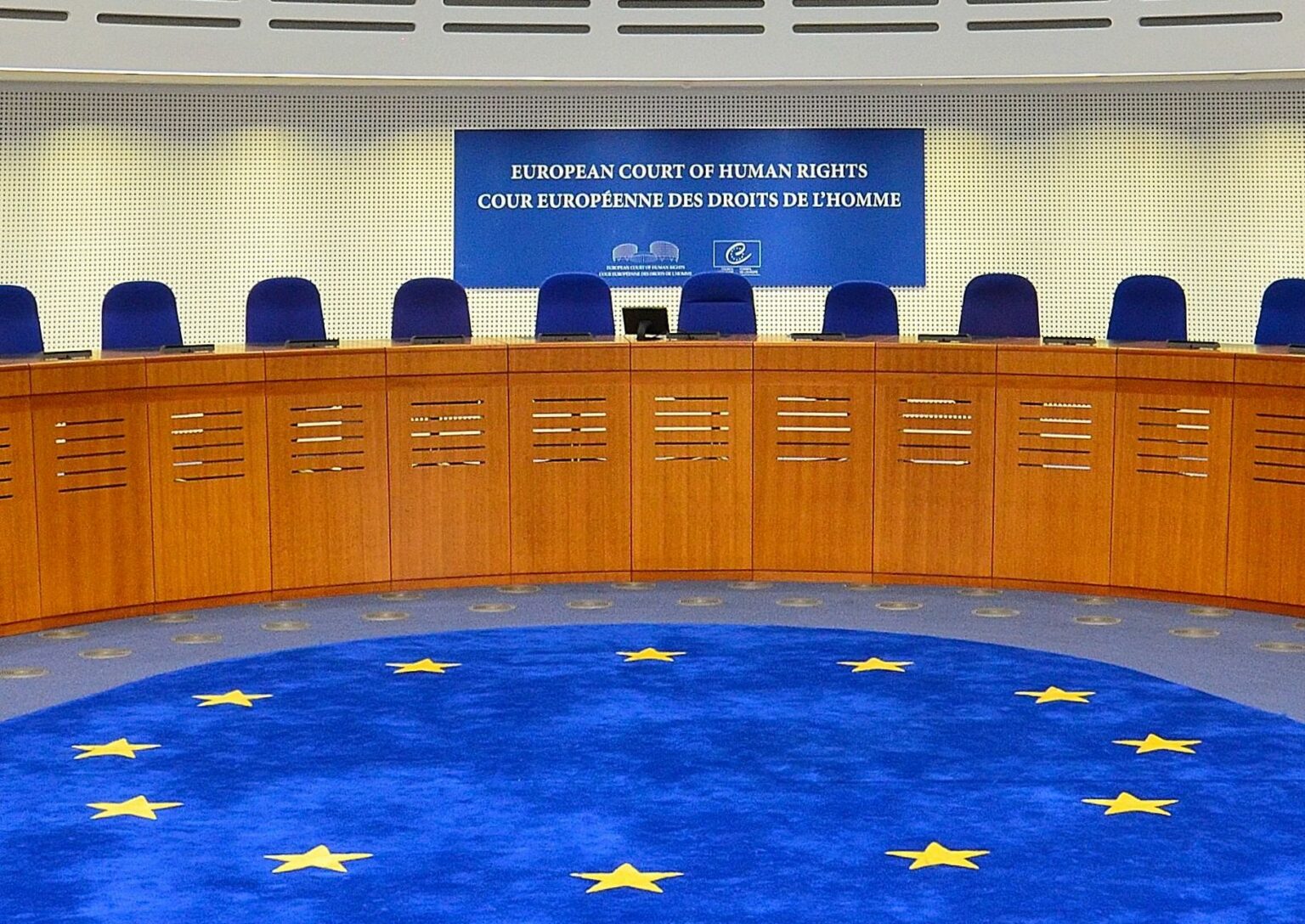
In a judgement published yesterday, the European Court of Human Rights found that Russia violated the right to private and family life of a trans man and his two foster children by terminating the foster care agreement on grounds of the man’s transition.
TGEU, ILGA-Europe, and the Irish Council for Civil Liberties, on behalf of nine fellow members of the International Network of Civil Liberties Organizations (INCLO)*, express relief over this decision. However, we regret that the Court failed to examine and rule on an apparent discriminatory motive.
The case concerned a Russian transgender man whose two foster children were removed from his home on account of his gender identity and transition.
Violation of the rights to private and family life
The European Court of Human Rights addressed issues under Article 8 regarding family life. The case involved the termination of custody and a foster care agreement of a trans man (and his husband) caring for two children, due to his diagnosis of “transsexualism” and change of gender identity. The Russian authorities primarily based their decision on the fact that under Russian law it is impossible for same-sex couples to be foster parents. Also, they cited societal traditions and mentality for the interference. The European Court however criticised that the overall family situation was not examined in full, nor were the conclusions of investigating authorities considered.
The Court criticised the lack of an individualised expert examination or scientific study on the impact of gender identity changes on children’s psychological health and development. Additionally, the assessment was not balanced or reasonable regarding the competing interests involved. The Court also concluded that under Article 34 ECHR, the applicant had standing to represent the children’s interests because, at the time the application was filed, social services that were meant to be safeguarding the children’s interests were responsible for the wrongful actions in the first place. The Russian government denied this.
A question of discrimination?
The applicant also alleged a violation of his right to non-discrimination, as protected by Article 14 ECHR. Unfortunately, the Court did not consider it necessary to explore this argument and concluded that the finding of a violation of Article 8 ECHR was sufficient. However, Russian authorities terminated the applicant’s custody exclusively on account of the gender identity of the trans man and his decision to transition, as chamber member Judge Serghides rightly pointed out in a partly dissenting opinion to the judgement. Therefore, it is incomprehensible why the complaint under Article 14 ECHR (non-discrimination) combined with Article 8 ECHR was not fully investigated. This is a missed opportunity to develop jurisprudence on Article 14.
TGEU, ILGA-Europe, and TLDP as well as the Irish Council for Civil Liberties, on behalf of 10 INCLO members, have respectively submitted comments in the case at the time.
What this means for trans foster parents and their families
Russia left the Council of Europe on 16 September 2022. Therefore, the country is no longer bound by the European Convention on Human Rights. However, cases that were pending at that point are still heard by the European Court of Human Rights.
Technically, Russia is still bound to implement cases that are dated before Russia left the Council of Europe. However, in practice it is highly unlikely that trans people in Russia will benefit from the judgement as Russian authorities tend to ignore judgements from the ECtHR, even more so if they relate to LGBTI people.
However, since the judgement is also relevant for the remaining member states, trans foster parents and their families in 46 States of Europe can refer to this judgement.
*The endorsing INCLO members are: American Civil Liberties Union (ACLU); Canadian Civil Liberties Association (CCLA); Centro de Estudios Legales y Sociales (CELS); Centro de Estudios de Derecho, Justicia y Sociedad (Dejusticia); Human Rights Law Network (HRLN); Hungarian Civil Liberties Union (HCLU); Irish Council for Civil Liberties (ICCL); Kenya Human Rights Commission (KHRC); KontraS (Commission for the Disappeared and Victims of Violence); Legal Resources Centre (LRC).
More info
ILGA-Europe’s statement on the Russian Supreme Court banning ‘the International LGBT movement” as extremist
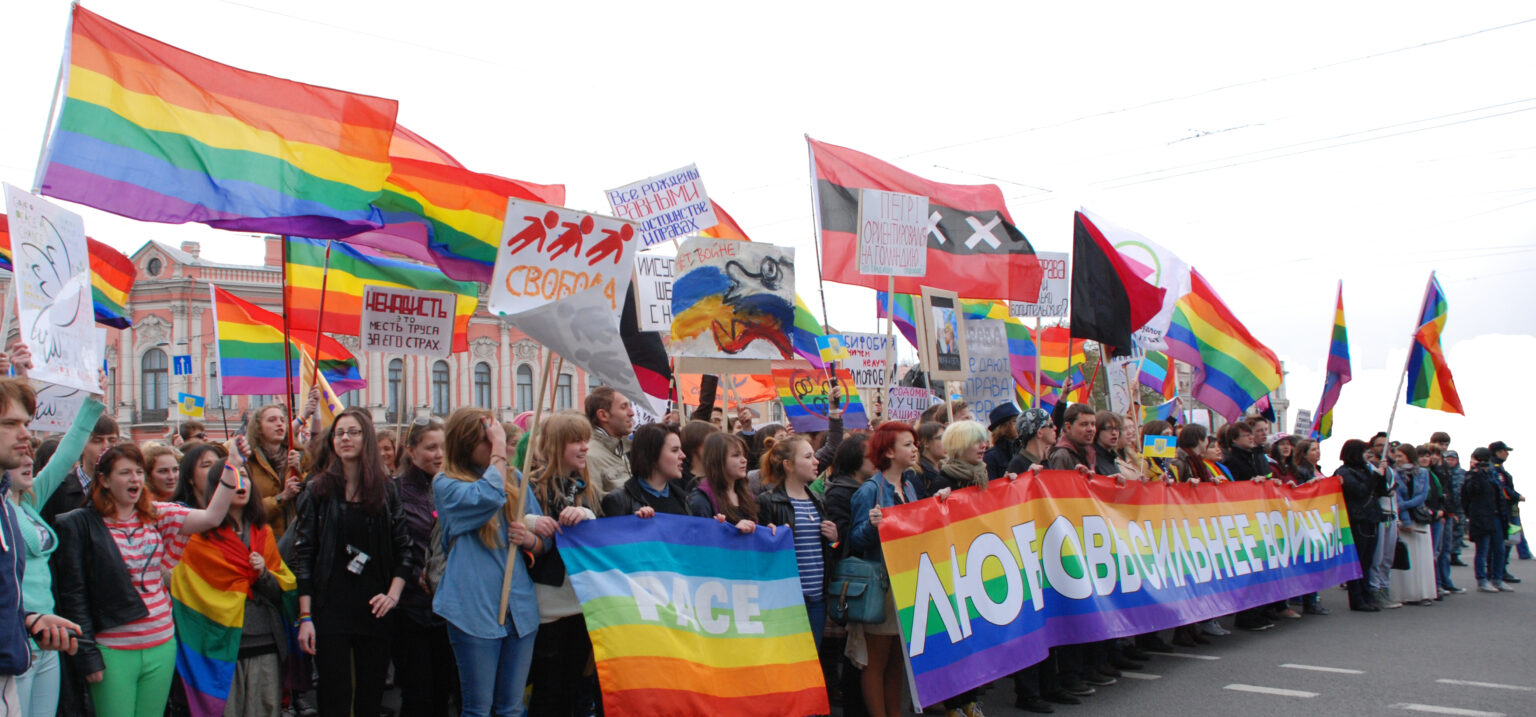
Today, Russia’s Supreme Court banned what it called the “international LGBT public movement” as extremist. The LGBTI movement’s activities within Russia were said to “incite social and religious discord” in violation of the country’s anti-extremism laws.
This violently disproportionate decision, which has been classified as a state secret and is therefore not open to scrutiny, makes imprisonment a very real scenario for participating in activism, sharing information about LGBTI people’s human rights, or simply speaking up. It is an attempt to completely shut down any LGBTI organising and instil fear of prosecution and imprisonment among LGBTI people in general, as well as those who support them.
Adding ‘the international LGBT movement’ to a list of over 100 banned ‘extremist’ groups in Russia, it also extends beyond Russia’s borders, opening gates to prosecution of any entity or person at home or abroad involved in LGBTI activism as ‘extremist’.
ILGA-Europe condemns this abhorrent attack on LGBTI people and human rights groups in Russia. This ban is unprecedented in our region and outlaws organisations and individuals who have been withstanding harsh state-led attacks since 2013, both those targeting the rights of LGBTI people and those targeting independent civil society and media.
We stand in solidarity with LGBTI activists in Russia, who have remained resilient and determined in the face of repeated and escalating attacks on their work, lives and freedom. ILGA-Europe has been working to directly support and empower the LGBTI movement in Russia through providing resources, learning, networking and convening opportunities, as well as mobilisation of solidarity networks, for more than 15 years. We are committed to continue doing so while learning about what is needed as the situation evolves.
In our consultations and meetings, Russian activists are saying loud and clear that action is needed now more than words. While organisations will feel the need to comment on today’s decision, we ask those who hold resources to do more than simply condemn. We urge them to recommit to staunchly supporting LGBTI organising in Russia through funding, security assistance, logistical and diplomatic support to relocations of those at risk, and other forms. In doing so, it is paramount to centre the strategies, guidance, knowledge and experience of LGBTI activists and groups that operate in the country and directly engage LGBTI communities in their work.
Significant European Court judgments in two cases concerning violence against LGBTI people involving state agents
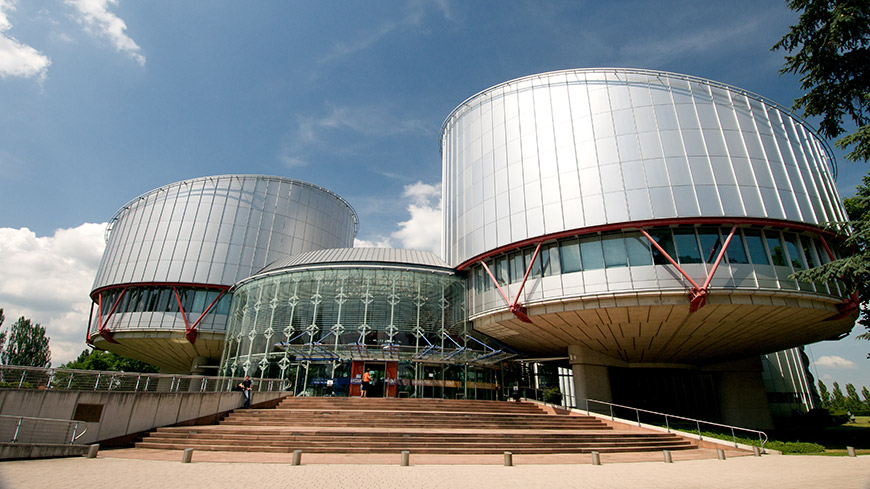
Two successful European Court cases brought against Russia underline state obligations to protect LGBTI community from violent counter demonstrators and general hate motivated violence.
ILGA-Europe welcome yesterday’s judgments from the European Court of Human Rights in Romanov and Others v Russia and Lapunov v Russia. Romanov and Others v Russia concerned Russia’s failure to prevent and protect LGBTI community members from homophobic violence during peaceful demonstrations and ensure effective investigation. The applicant in Lapunov v Russia was one of the victims of the “anti-gay purges” that took place in Chechnya in 2016-2017, having been detained and tortured in March 2017.
According to ILGA-Europe’s Head of Litigation, Arpi Avetisyan, “These cases are of great significance for the recognition of the rights of LGBTI people that have suffered by inaction or actual infliction of violence by state agents.
“Importantly, the Court observed that even when investigations were initiated, the homophobic nature of the attacks was rejected by the authorities, therefore could not be considered as effective.”
The Court found that physical and phycological treatment suffered by Mr Lapunov in Chechnya amounted to discriminatory torture under the European Convention of Human Rights. Furthermore, the authorities failed to carry out effective and meaningful investigation to uncover violence based on sexual orientation, despite all the evidence provided.
Russian LGBTI organisations, who worked to support both cases before the Court, note that although Russia has left the Council of Europe and is not party to the European Convention since March 2016, it is unlikely to implement these judgments. They are however symbolically important for persecuted people in Russia, as they give hope and a sense of support from the international community. It is crucial that state-sponsored homophobia does not go unnoticed.
Avetisyan concluded: “These cases are another affirmation by the Court on Council of Europe member state obligations to protect LGBTI community from violent counter demonstrators and general hate motivated violence, and to ensure timely and effective investigations in such cases.”
The Frontline: Behind The Rainbow Map: Activism in the Lowest Ranking Countries
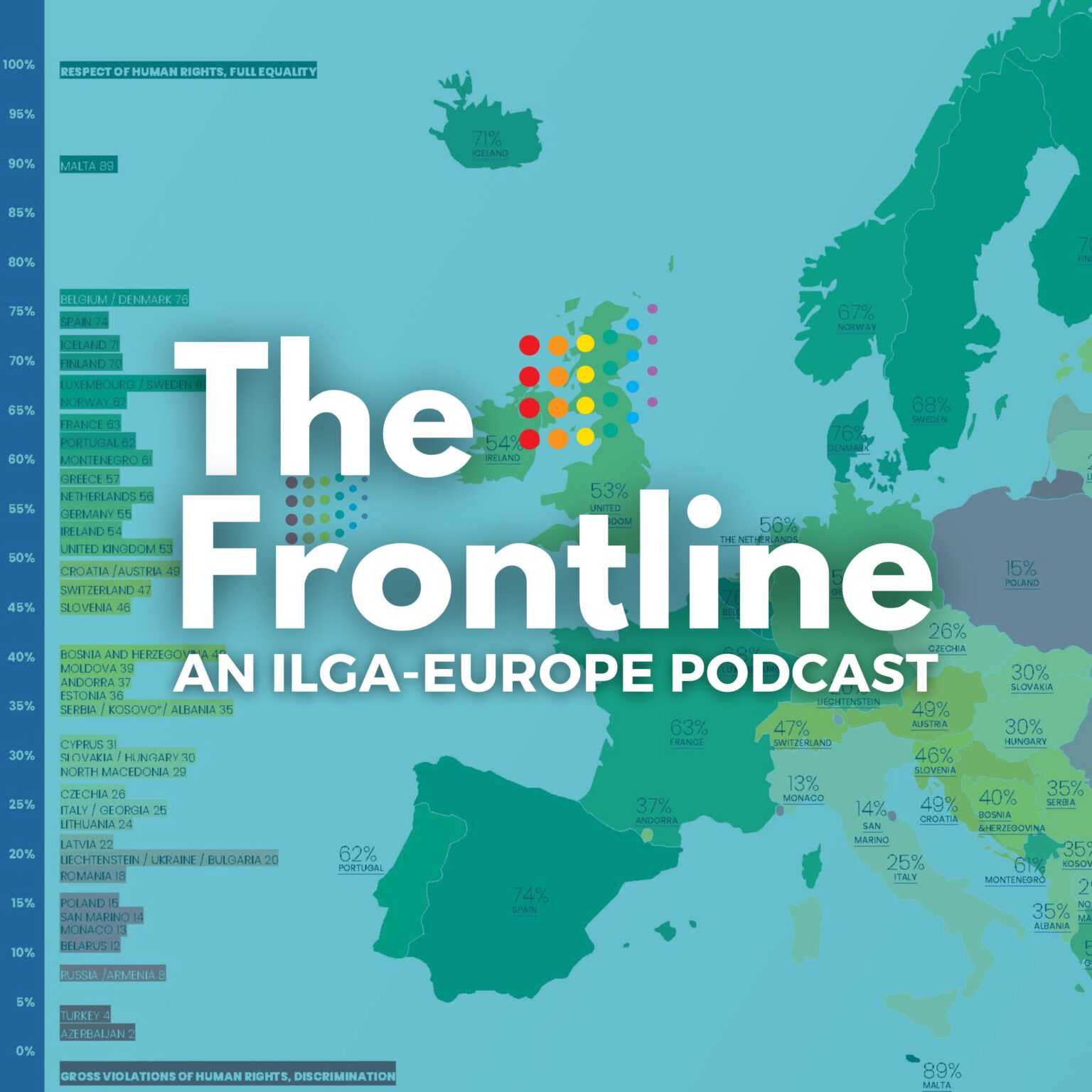
Every year since 2009, ILGA-Europe’s Rainbow Map has been ranking the 49 countries that make up Europe based on the legal and policy situations of LGBTI people.
While during this time there has been much movement at the top of the map, with Spain, Finland, Greece and Moldova making big jumps this year, the countries at the bottom have largely been the same since the very first map, namely Russia, Armenia, Turkey, and at the very bottom Azerbaijan.
In this episode of our podcast, The Frontline, we ask the question, if a country stays at the bottom of the Rainbow Map ranking, does it mean there’s no queer activism happening there? In countries where advocacy is not possible, and where daily life for LGBTI people is often extremely challenging, what’s happening in the work towards LGBTI rights and equality? And is this mostly invisible activism bringing about change for LGBTI people in the countries where it seems life is getting worse rather than better?
Statement on today’s vote to ban legal gender recognition in Russia
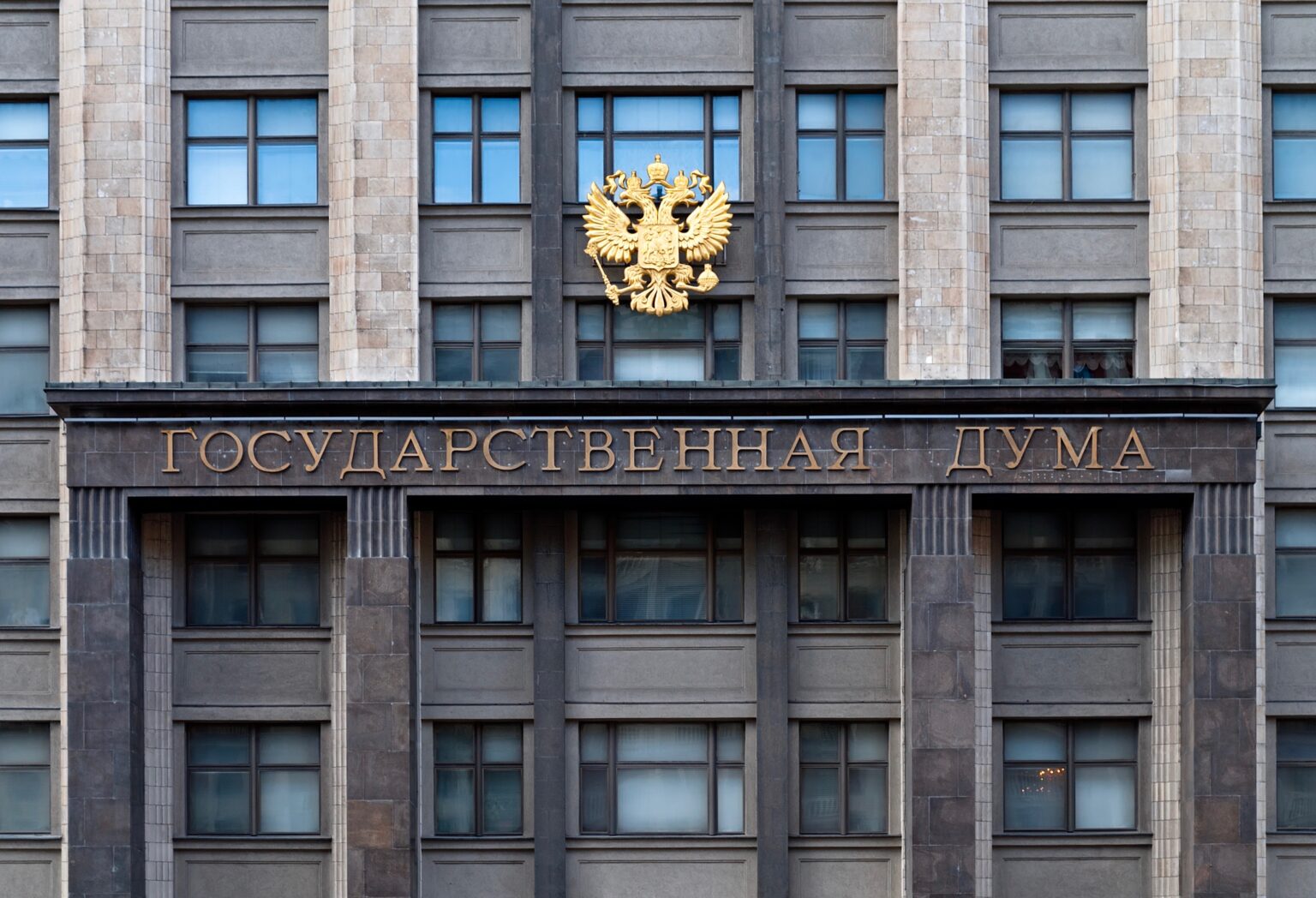
ILGA-Europe issue this public statement to express our support to and solidarity with trans and gender diverse people in Russia in the light of the recent legislative developments that severely infringe upon their human rights.
A proposed bill, passed in the third reading at the Russian Duma on July 14[1], introduces a comprehensive ban on trans-specific healthcare and legal gender recognition, effectively limiting individuals’ autonomy over their own bodies and identities.
We firmly assert that such legislation flagrantly violates fundamental human rights standards and principles.
ILGA-Europe firmly believe in the inherent dignity and equal rights of all individuals, regardless of their gender identity or expression. International human rights standards, including the Universal Declaration of Human Rights, emphasise that everyone has the right to self-determination, privacy, and the highest attainable standard of physical and mental health. Denying trans and gender diverse individuals access to trans-specific healthcare and legal gender recognition blatantly disregards the international human rights framework.
We stand in solidarity with the trans and gender diverse community in Russia, whose rights and wellbeing are under attack. The denial of trans-specific healthcare, including hormone therapy and surgeries, not only disregards the human rights of trans and gender diverse people but also perpetuates discrimination, stigmatisation, and marginalisation. It is essential to recognise that trans-specific healthcare is a critical component of comprehensive healthcare, promoting the well-being, mental health, and social integration of trans and gender diverse people.
Furthermore, the bill invalidates all certificates of legal gender recognition for individuals who have undergone transition-related surgery but not yet changed the gender marker in their passport. This is a violation of their right to privacy, places trans people in legal limbo, and creates unnecessary burdens on trans people, forcing them to disclose their private and medical history and exposing them to discrimination, harassment and violence.
Additionally, the prohibition on adoption and guardianship for trans and gender diverse people is a denial of their right to form a family and care for children in need. This discriminatory provision perpetuates harmful stereotypes and prejudices against trans and gender diverse parents.
This bill not only violates the rights of trans and gender-diverse people but also raises concerns about the wellbeing and bodily autonomy of intersex children and people, particularly in relation to intersex genital mutilation. International human rights bodies have repeatedly classified non-vital or cosmetic medical interventions against intersex infants and children without the child’s full personal, informed consent, otherwise known as “intersex genital mutilation” or “IGM”, as constituting cruel, inhuman, or degrading treatment or harmful practices. These practices violate the principles of bodily autonomy, non-discrimination, and the best interests of the child. They have been recognised as human rights violations that require urgent action and protection for intersex people.
The bill will now be voted in the Federation Council on July 19 and then needs to be signed by the President to come into force.
We stand united and in solidarity with our allies and partner organisations in demanding justice, equality, and dignity for trans, gender-diverse and intersex people in Russia. We will continue to advocate tirelessly for the full recognition of their human rights, including bodily autonomy, access to comprehensive healthcare, legal gender recognition based on self-determination, and the right to form families of trans and gender diverse people in Russia.
[1] http://duma.gov.ru/news/57524/
The frontline: LGBTI People and the War in Ukraine
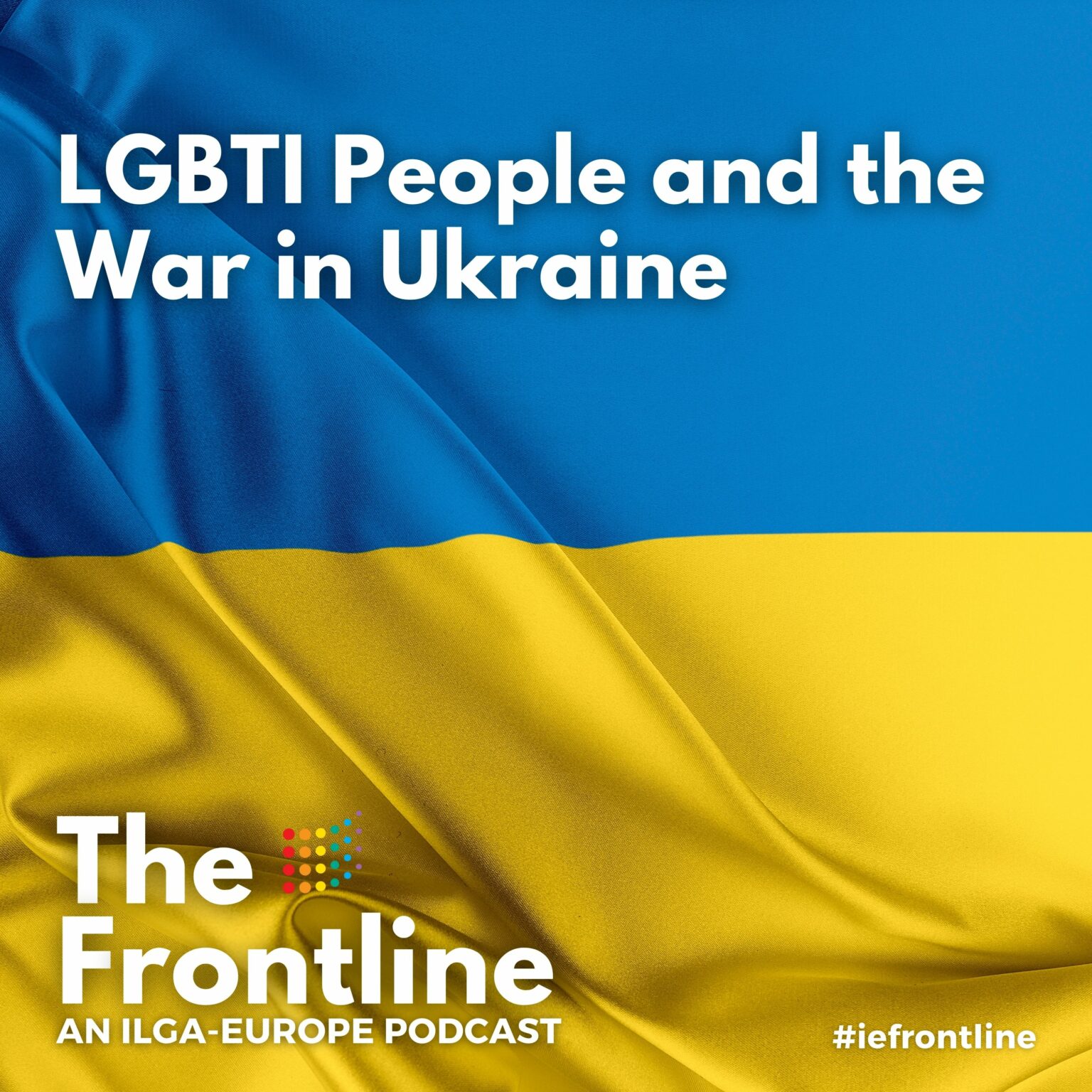
At ILGA-Europe we recognise that the war is not going to be a short-term situation for vulnerable people in Ukraine, Russia, neighbouring countries, and all countries in Europe and Central Asia that are and will be hosting displaced people. With our deep and nuanced knowledge of the human rights situation for LGBTI people across Europe and Central Asia, we know that there will be great complexity and particular vulnerabilities in the experience of LGBTI refugees, and of those LGBTI people who are either forced, or choose to remain in Ukraine and Russia.
In this episode we’re talking about how we at ILGA-Europe are responding to the war in Ukraine, and in particular the effects on LGBTI people, both in Ukraine and Russia, in neighbouring countries, and all host countries across Europe and Central Asia. With us to talk about the current situation, from ILGA-Europe’s perspective, combined with what we know from our member organisations in Ukraine, Russia and across the region, is our Executive Director, Evelyne Paradis.
Listen below or click here to listen and subscribe to The Frontline on your favourite podcast platform.
How trans parents are better protected after European Court ruling
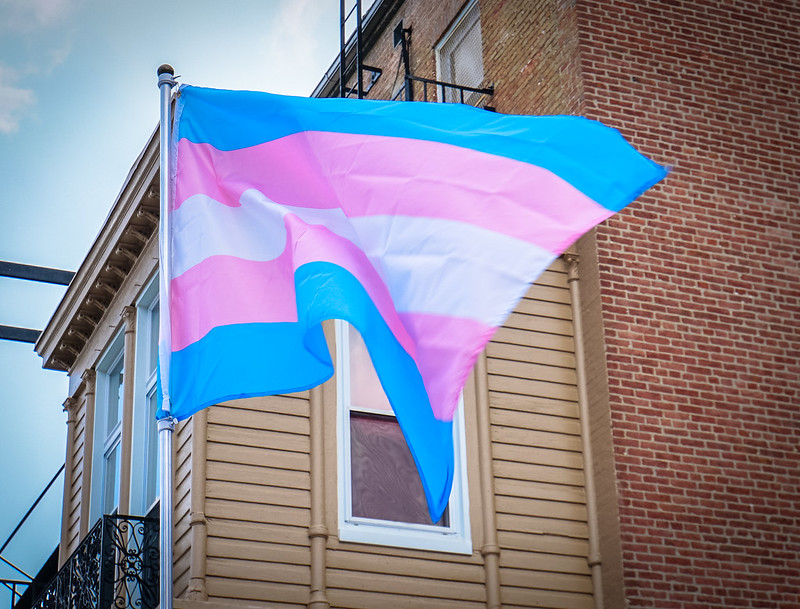
Recently, the European Court of Human Rights ruled in favour of a trans woman in Russia who was denied access to her children because of her gender identity and transition. Read on to find out how this may benefit all trans and LGBTI parents in Europe.
For four long years, A.M. did not see her own children. This was not her decision. She was denied her right to love, care for and nurture the bond with her children because of her gender identity and her transition, after her ex-spouse obtained a court order. Now, the European Court of Human Rights has ruled in her favour in a landmark judgment. This is the first time the court has found a violation of the prohibition of discrimination (Article 14) because of a person’s gender identity. It also found a violation of the applicant’s right to private and family life (Article 8).
A.M., the applicant in the case, is the parent of two children born in 2009 and 2012. After seven years of marriage, in 2015 she separated from her wife and began her legal gender recognition process to live in the gender she identifies with. She continued to see her children for over a year, until a district order obtained by her ex-partner cut off visitation in 2017.
The Russian courts argued that the decision to restrict the applicant’s parental rights was necessary, as contact with the trans parent would have a “negative impact on the mental health and psychological development” of her children. It also claimed that visitation could violate so-called propaganda law, which bans public statements in relation to LGBTI people in Russia.
However, the European Court of Human Rights noted that the domestic courts made their decision “in the absence of any demonstrable harm to the children,” failing to demonstrate that the restriction was justified and well-substantiated. Notably, the court found that the applicant had been discriminated based on her gender identity in comparison to other cis parents, saying that she has been “treated differently from other parents who also seek contact with their estranged children, but whose gender identity matches their sex assigned at birth.” It also added that depriving A.M. of any contact with her children could “have irremediable consequences for relations between the child and the parent with whom that child does not live.”
The court awarded the applicant €9,800, even though she had not asked for pecuniary compensation, concluding that “such damage cannot be compensated for solely by the finding of a violation.”
Every fourth trans person in Europe is a parent and this judgement gives legal security to many of them. Now it has been confirmed that discrimination based on gender identity, prohibited under the European Convention, applies in parental rights cases. If you are a good parent, that’s what matters, irrespective of your gender identity
From a children’s rights perspective, when someone tries to limit parental rights for trans and LGBTI parents more broadly, the main argument used is that it is has detrimental effect on children. In other words: they say children would suffer because of their parent’s gender identity. The court has made clear that it is in the best interest of the child to have a loving parent and that to restrict visitation just because a parent is trans is not a good enough reason.
The European Court of Human Rights is the court of law of the Council of Europe, of which Russia is a member. Judgments of the European Court of Human Rights are binding on all Council of Europe Member States; however, Russia has ignored the rulings several times. In 2020, draft amendments to the Russian Family Code would have seriously negatively affected legal gender recognition procedures. In November these amendments were withdrawn.
“We call upon the Russian authorities to respect the court’s decision and immediately end the discrimination of trans families,” said ILGA-Europe’s Executive Director, Evelyne Paradis.
LGBTI organisations welcome European Court judgement in favour of trans parental rights in Russia
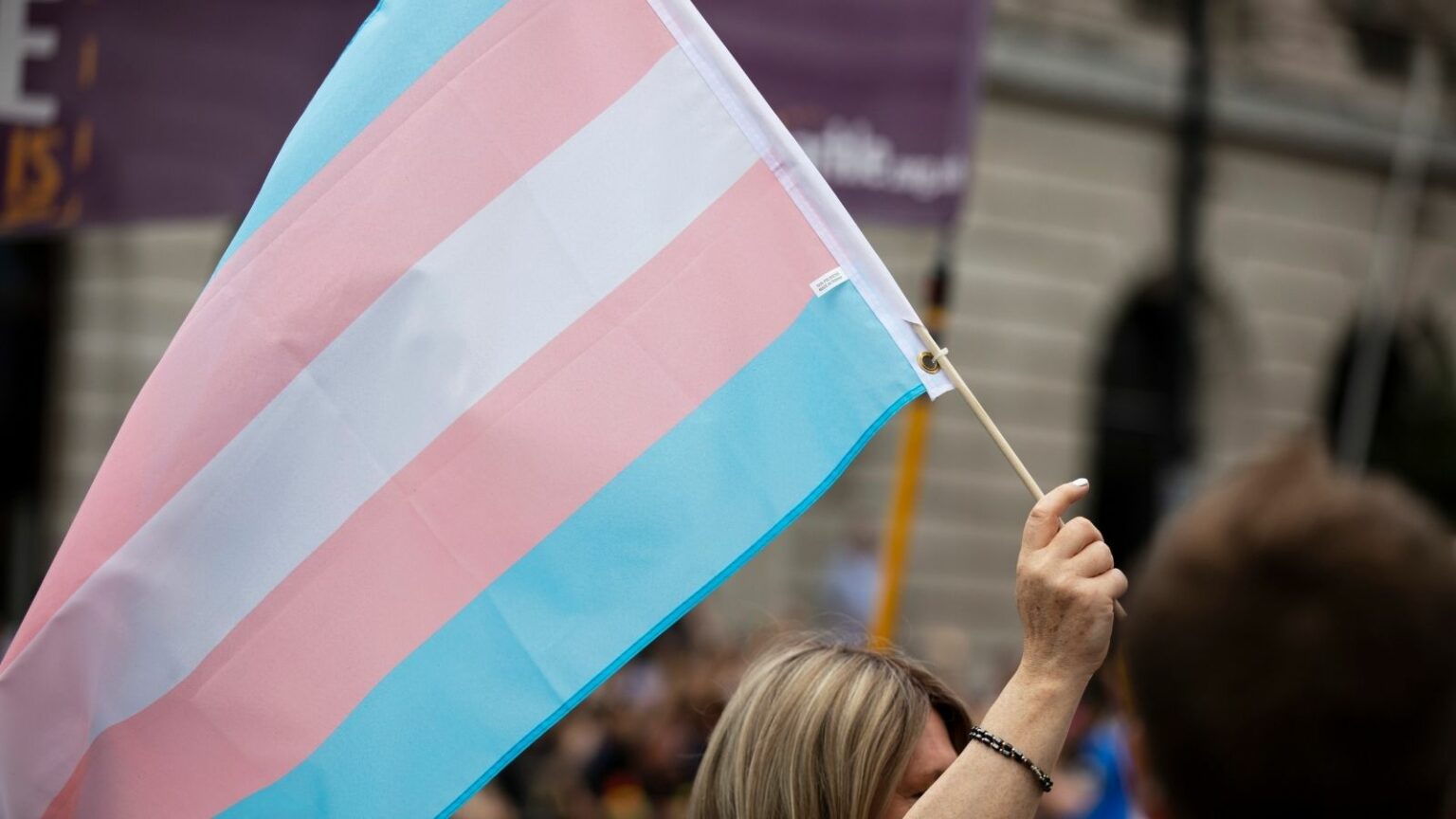
Today, in a landmark judgement strongly welcomed by TGEU and ILGA-Europe, the European Court of Human Rights has ruled in favour of a woman in Russia who was denied access to her children because of her gender identity and transition.
Today, in the case of A.M. and Others v. Russia, the European Court of Human Rights unanimously found a violation of Article 8 (right to private and family life) and Article 14 (prohibition of discrimination).
The case concerns a trans woman from Moscow who was prevented from having contact with her children because of her gender identity and transition. The Court found that the domestic courts did not sufficiently take into account the best interest of the child when restricting the applicant’s parental rights, and observed that, contrary to the established practice, they failed to conduct a comprehensive assessment and scrutiny to evaluate a potential danger to the children’s wellbeing.
The Russian courts argued that the decision to restrict the applicant’s parental rights was necessary, as contact with the trans parent would have a “negative impact on the mental health and psychological development” of her children. The European Court however noted that the domestic courts failed to demonstrate that the restriction was justified and well-substantiated.
Reacting to the judgement, Executive Director of TGEU, Masen Davis said: “The kids are alright – there is nothing wrong with being a trans parent! Today, we celebrate this important message together with all trans families. Every fourth trans person in Europe is a parent. Today’s judgement gives legal security to many of them. We congratulate the applicant for having gone all the way to Strasbourg to defend her right to be the best possible parent to her children.”
Evelyne Paradis, Executive Director of ILGA-Europe added: “Too often we are hearing the best interest of the child being abused as an argument to limit the rights of LGBTI people. We are glad to see the Court clearly rejecting such an abusive argument, and instead naming very concrete responsibilities for state authorities in ensuring the best interest of the child. Spreading hatred, misinformation and splitting loving parents from their children is not in the best interest of children.”
This is the first time the European Court of Human Rights has found a violation of the prohibition of discrimination (Article 14) because of a person’s gender identity. Notably, the Court found that the applicant had been discriminated based on her gender identity in comparison to other cis parents, saying: “[the] applicant has… been treated differently from other parents who also seek contact with their estranged children, but whose gender identity matches their sex assigned at birth.”
The Court awarded the applicant €9,800, even though she had not asked for pecuniary compensation. The Court held that “such damage cannot be compensated for solely by the finding of a violation.”
TGEU and ILGA-Europe had submitted written comments to the case, which the Court took into consideration in its analysis. The comments presented information dispelling myths about trans parenthood, international developments recognising increased rights recognition and requirements for a “best interests of the child” standard.
“We call upon the Russian authorities to respect today’s decision and immediately end the discrimination of trans families,” Evelyne Paradis concluded.
Further information:
- Read more about Russia in our Rainbow Map and Annual Review.
For further comment, contact: Ana Muñoz Padrós, ILGA-Europe: ana@ilga-europe.org, +32 493 35 60 55
New legal barriers for civil society in Russia
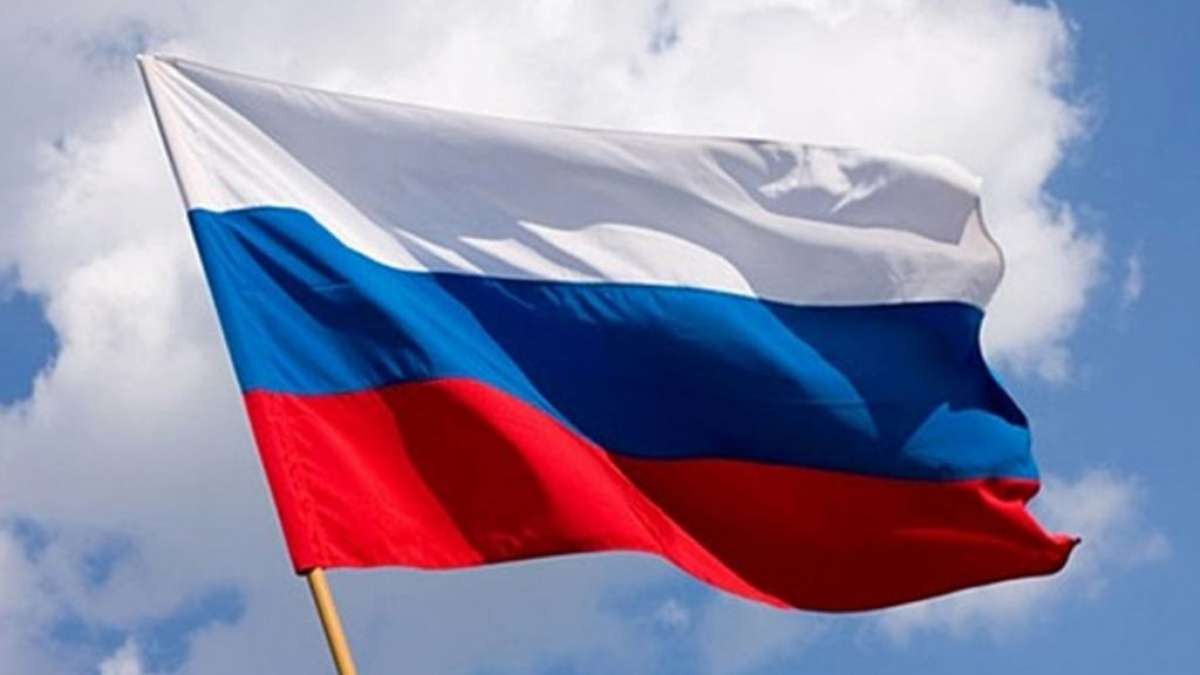
For Russian LGBTI groups, along with the rest of the civil society in the country, 2021 started with the arrival of new barriers to their work.
Law on ‘foreign agents’ extended to individuals and unregistered groups
On 30 December 2020, the amendments to the existing ‘foreign agents’ legislation were signed into law. The ‘foreign agent’ status now applies to anyone receiving funding or other assistance from a foreign entity directly or via Russian organisations or citizens, while having membership in a political party, making “public appeals” for changes in the legislation, engaging in “dissemination of opinions” about officials, carrying out opinion polls “in the interests of a foreign source”. The list of ‘political activities’ also includes “purposeful collection of information in the field of military and military-technical activities” of Russia.
These amendments also extend the ‘foreign agents’ law to apply to unregistered associations that engage in ‘political activities’ and receive funding or other assistance from abroad.
Such individuals and associations are now required to join the registry of ‘foreign agents’ and to report to the Ministry of Justice about their income and expenses, as well as any assets that they receive from abroad. ‘Foreign agents’ cannot become civil servants and cannot have access to state secrets. They are required to label all their communications and publications accordingly, informing the public of their ‘foreign agent’ status.
Criminal liability for those failing to comply with the ‘foreign agents’ law
On 30 December 2020, another amendment to the ‘foreign agents’ was signed into law. It institutes criminal liability for individuals and organisations that were recognized as ‘foreign agents’ but failed to comply with the ‘foreign agents’ law, i.e. those who have previously been found guilty of administrative offences in relation to their ‘foreign agents’ status and have not resolved these violations (e.g. voluntary registration as ‘foreign agents’, labeling communications and publications, or reporting to the Ministry of Justice). Now repeated failure to comply with the ‘foreign agents’ legislation is punishable by up to 5 years in jail.
Restrictions on fundraising for public events
Again on 30 December 2020, two new bills were signed into law and thus amended the current federal laws on public assemblies. Now fundraising and spending for public events are regulated by law. A ban is introduced on the financing of a public event from foreign sources: from foreign states, foreign and international organizations, international movements, foreign citizens (with the exception of permanently residing in Russia), foreign NGOs, minors and anonymous donors, as well as legal entities registered less than one year before the fundraising campaign.
For public events with more than 500 participants fundraising can only be done through a dedicated bank account in a Russian bank. The collected funds can only be used for the public event that was indicated at the time of opening the bank account. Organisers are required to report on the spending after the public event.
Additionally, by a court decision, the term ‘public event’ can cover, inter alia, a series of one-person pickets, individuals taking turns to protest solo, as well as “mass simultaneous presence or movement of citizens in public places, aimed at expressing and forming opinions, making demands on various issues of the country’s political, economic, social and cultural life and foreign policy issues.”
V.D. v Russia
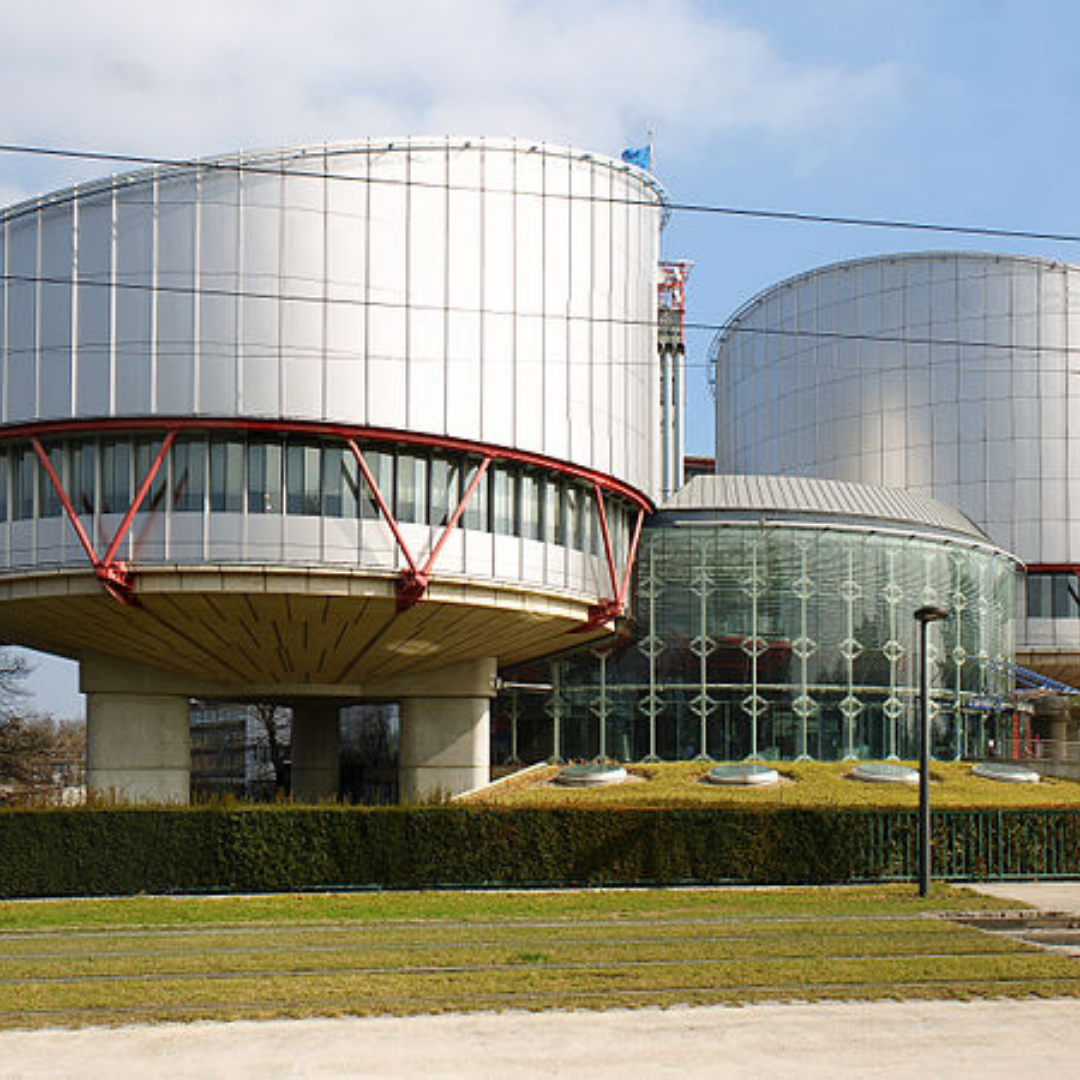
Asylum
Submitted jointly by ILGA-Europe, AIRE Centre, ICJ and UKLGIG.
How you can help persecuted Russian LGBT+
activist, Yulia Tsvetkova
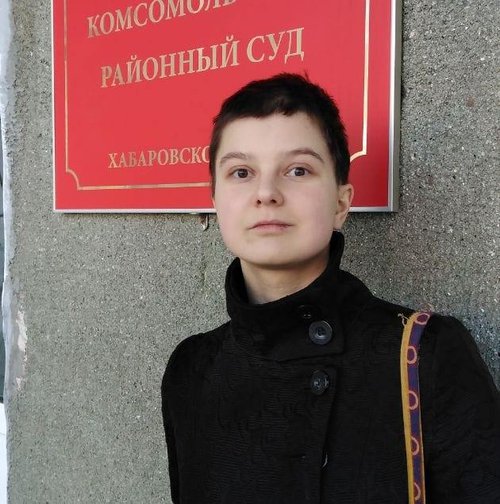
By the end of 2018, at the age of 25, Yulia Tsvetkova had already made some of her
dreams come true: opening a theatre for kids, launching a sex-ed project for
teenagers, and creating feminist resources online. A year later and ever since, this
feminist and LGBT+ activist is facing up to six years in prison, is receiving death
threats, and cannot leave her town in Russia’s Far East. Only in 2021 the long and
torturous investigation led to a trial and in October she had a first administrative win
among the many charges she’s facing. Read on to learn more about Yulia’s story and
the ways you might help her.
*Updated in November 2021
This is Yulia Tsvetkova from Komsomolsk-on-Amur in Russia’s Far East. Yulia is a
feminist, an LGBT+ activist, an artist, and a founder of a theatre studio for teenagers.
“I am a scary woman,” she says.
Wondering why? Read on and judge for yourself.
Yulia began 2019 having achieved a lot and with big plans in store. To mark the first
day of that year, and to take stock of the past 12 months, she posted this online:
“2018 became a year of a major shift for me. It happens sometimes that important things
arrive all at once. This year, I opened my own theatre, a community centre and an online group. Towards the end of the year, I launched a project that I had dreamed about for many years – sex-ed for teenagers. If somebody had told me a year ago that it would have turned out like this, I’d have laughed wholeheartedly…
Many of these things would not have happened without the examples of the amazing
people who came into my life and showed me that dreaming about a better world is both
possible and necessary, and that we all are able to change what’s around us.”
Fast-forward to the first day of 2020 — and Yulia celebrated New Year under house
arrest, with a tracking bracelet on her ankle.
What happened in-between?
During 2019, Yulia carried on with her freshly-launched activist and theatre initiatives.
She hosted events at the LGBT-friendly community centre. She contributed lots of
content to her online awareness-raising projects: Vagina Monologues on
destigmatising women’s bodies; Komsomolka on feminism; and Dandelion field on
sex-ed for teenagers. Together with the young members of her theatre group, Merak,
she had a youth theatre festival in the making with four plays to present that coming
March.
Then, just two months into 2019, anonymous complaints, threats, and calls from the
police began creeping into Yulia’s life. She was forced to cancel the theatre festival, due
to pressure from the local authorities. Visits to the police station for questioning
quickly became a routine and constant part of her days.
On one of her visits to the police, she learned that her drawings promoting body
positivity were deemed “pornography” by law enforcement agents. Concerns were
raised about her “A woman is not a doll” series, in which schematic depictions of
women are accompanied by affirmations like: “Living women have body fat, and that’s
normal;” “Living women get wrinkles and grey hairs, and that’s normal;” and “Living
women have muscles, and that’s normal”. A couple of teenagers from Yulia’s theatre
group and some followers of her online communities were called in for questioning
too.
The “Vagina Monologues” online community that Yulia led drew the attention of the
police as well. It’s community featured abstract depictions of female sexual organs and
educational drawings of women’s bodies.
Invitations from the local police for ‘informal questioning’ stopped later in the fall of
2019.
But Yulia’s story was about to take a darker turn.
Informal questioning soon gave way to formal interrogations. On 20 November 2019,
Yulia Tsvetkova was arrested and put under investigation for “distribution of
pornography”.
Yulia was under house arrest for almost four months, from 23 November 2019 until 16
March 2020.
She went through dozens of interrogations and was ordered to undergo a psychiatric
examination.
She was fined for “propaganda of non-traditional sexual relations” twice: in December
2019 and in July 2020. In both cases “propaganda” was found in her online content:
first in the feminist and LGBT+ communities that she ran, then — in a drawing
featuring LGBT+ families and a slogan “Family is where love is. Support LGBT+
families!”
Currently, Yulia is appealing these two decisions. She is also facing a third charge of
“propaganda” based on an online post with illustrations in support of LGBT+ families
in Russia.
She continues to regularly receive death threats, and her formal complaints to the
police are met with complete indifference and inaction.
On 12 January 2021, she was again charged with ‘distribution of pornography’ in
connection with online dissemination of her feminist drawings. This is the fourth time
that the Investigative Committee indicts Yulia on these charges. “It’s the same case, just
the prosecutor’s office does not send the case to court, but returns it for further
investigation”, says Yulia’s mother Anna Khodyreva.
She is still under gag order and cannot leave her town. Yulia’s trial in the
“pornography” case started on 31 March 2021, and she is set to appear in court several
times throughout April to June. The trial is happening behind closed doors, contrary to
Yulia’s defense demands.
In protest, and after two years under investigation that have been already taken away
from her, Yulia went on hunger strike on May 1 to demand an open trial and a speedy
process. An endless delay of the process and its secrecy are taking a toll on Yulia and go
against her right to a due process. Yulia decided to stop the strike on May 7 because of
health considerations and care for her family and close ones.
In October 2021, the Khabarovsk Regional Court overturned the decision of the
Komsomolsk Court to close the Vagina Monologues social media group. The case was
sent for a new consideration to the court of first instance due to violations of Yulia’s
rights during the consideration of the case. If the case would have been lost, it would
Have a look at Yulia’s hearings in the pornography case timeline in
2021
- 31 March: Preliminary hearing
- 12 April: Pre-trial motions
- 1 May to 7 May: Yulia goes on hunger strike
- 6 May: The judge denied Yulia’s request to bring in a public defender. After the
- announcement of charges, the hearing was postponed once again due to absence
- of prosecution’s witnesses.
- 24 May: To be confirmed
- 15 June: To be confirmed
- Check out this blog regularly for more updates!
Here’s how you can help Yulia Tsvetkova
Today, Yulia needs as many eyes as possible on her case and as many messengers as
possible for her story. Your attention and your action matter.
- Write, talk, tweet, draw about Yulia’s story, and invite your friends and social
media community to join. - Browse the FreeTsvet website, launched in Yulia’s support by activists in Russia, for
complete details and solidarity action ideas. - Get creative with your own solidarity action.
- Use the hashtags #заЮлю, #ямыЮлияЦветкова, #свободуюлецветковой, #свободуцветковой on your social media platforms
- Sign this petition.
Maxim Grigoryevich Lapunov against Russian Federation
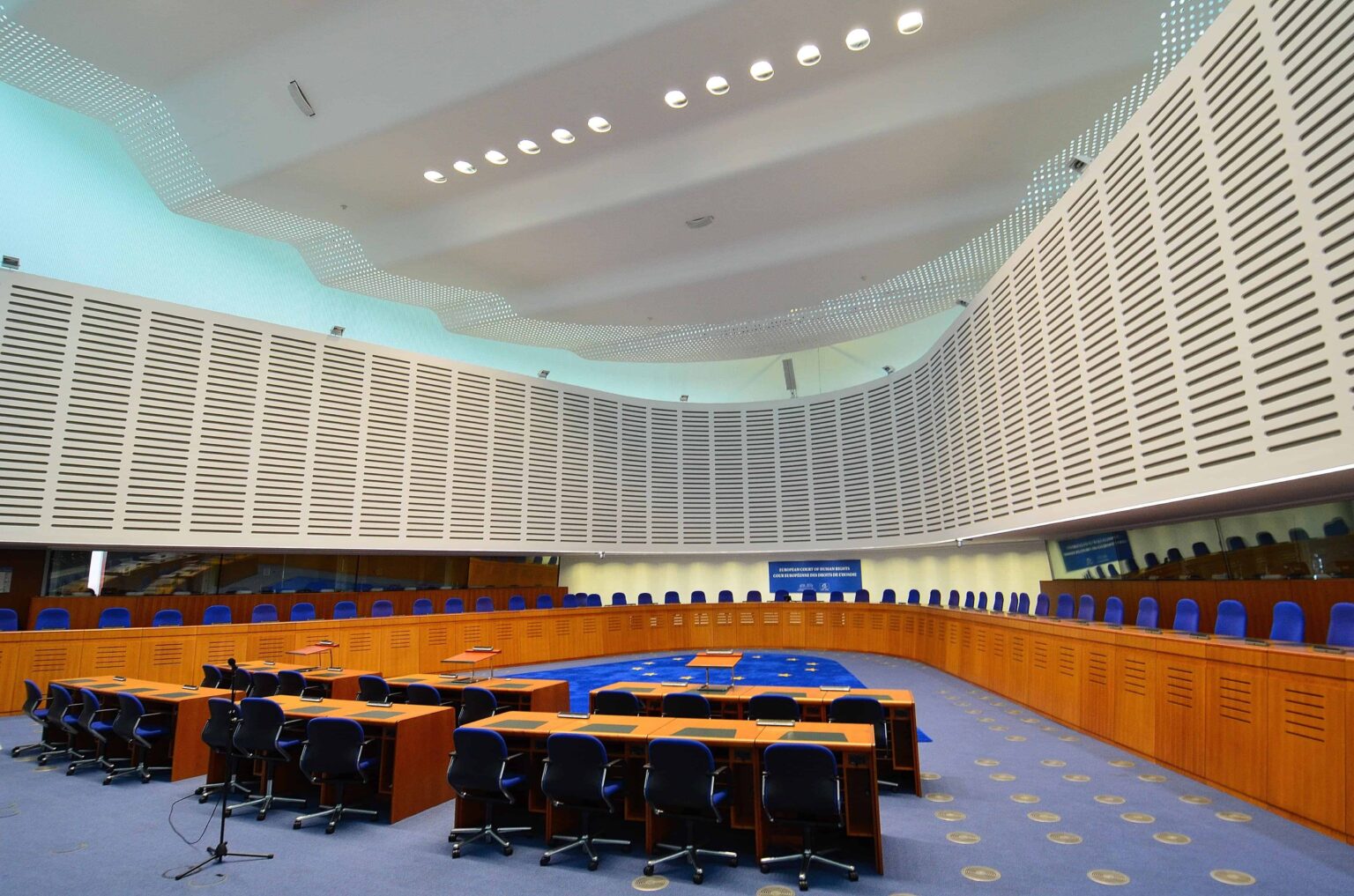
State violence against the LGBTI community.
(Application no. 28834/19), 16 April 2020
Find here the communicated case.
See also:
In a very recent judgement in the case of Azul Rojas Marin v. Peru, the Inter-American Court of Human Rights (“IACtHR”) classified as torture the detention and rape of the victim – who identified as a gay man at the time of the events– by police staff, and noted the violence was motivated purely by the victim’s sexual orientation, and therefore could be classified as a “hate crime”. The IACtHR concluded that such discriminatory torture not only breached the victim’s rights, “but it was also a message to all LGBTI people, as a threat to the freedom and dignity of this entire social group”.
See here full judgement, in Spanish.
ILGA-Europe had made an amicus curia submission in this case highlighting European Court’s approach on the issue of discriminatory torture and access to effective remedies.
Alekseyev and Others v. Russia

Hate speech
(Application No. 39954/09), 11 April 2018
Find here the communicated case.
- The applications concern two interviews with public officials published in the national press, during which heinous statements against homosexuals were made. The Russian authorities refused to open criminal proceedings, finding that homosexuals were not a social group and that the applicants were not personally targeted by the contested statement.
- ILGA-Europe submitted the following:
- There is widespread recognition within Europe and beyond that homophobic and transphobic statements amount to hate speech. The ECtHR and other human rights bodies have highlighted the particular responsibility of politicians to avoid disseminating words likely to foster intolerance.
- Homophobic and transphobic statements have a humiliating and stigmatising effect. The ECtHR has considered that violence perpetrated with homophobic and transphobic overtones was capable of meeting the threshold required for a violation of Article 3. Homophobic and transphobic statements can also have extremely serious repercussions for the enjoyment of other rights and freedoms, notably, the right to respect for private and family life and the prohibition of discrimination under Articles 8 and 14 of the Convention.
- International and European law and standards support the need for action against particular uses of hate speech through the application of administrative, civil and criminal law.
R.L. against Russia and P.O. against Russia

Restricted access to LGR
(Applications nos. 36253/13 and 52516/13), 19 March 2018
Find here the communicated case.
- The applicants are Russian transgender men. Due to the absence of a transparent and accessible procedure for changing their names and gender markers, the Russian authorities refused to recognise their gender identity unless they agreed to undergo various medical procedures.
- ILGA-Europe together with TGEU, ILGA and the Human Rights Centre “Memorial” submitted the following:
- The ECtHR has described gender identity as “a fundamental aspect of the right to respect for private life” and as “one of the most basic essentials of self-determination,” linking it to a “right to sexual self-determination”.
- The ECtHR held in A.P, Garçon and Nicot v. France that the requirement to undergo sterilisation or treatment involving a very high probability of sterility in as a precondition to LGR was in breach of the right to respect for private life under Article 8. Several United Nations Treaty Bodies and Special Procedures consider that LGR should not be based on gender reassignment surgery.
- In Russia, trans persons still face considerable difficulties in access to LGR because of the lack of clarity in Russian legislation.
- Gender identity emerges as a protected ground under international anti-discrimination law. UN Treaty Bodies consistently mention gender identity among the protected characteristics of anti-discrimination clauses in Universal Treaties. Research consistently indicates that trans people suffer from disproportionately high levels of violence, harassment and discrimination in all fields of life. For this reason they should qualify for heightened protection under Article 14 of the Convention. Gender identity is protected under Article 14, although the language used by the Court to date has been inconsistent. This area of jurisprudence would benefit from some clarity.
X. v. Russia

Name change request by transgender woman
(Application no. 60796/16), 4 August 2017
Find Court’s communication here.
- The applicant, a transgender woman, complained of a violation of her right to respect for her private life on account of the Russian authorities’ refusal to change her name and remove her patronymic name without a change of gender.
- ILGA-Europe together with TGEU, Transgender Legal Defence Project and Human Rights Centre “Memorial” submitted the following:
- Both the ECtHR and the Court of Justice of the European Union (“CJEU”) have recognised that a person’s name is a fundamental part of their identity and thus fall within the scope of the protection conferred by Article 8 of Convention.
- Under Russian law, there are no substantial requirements for a change of name, and the procedure should be quick, accessible and transparent. However, there is no consistent practice, and courts have refused to permit the change of name without a corresponding change of legal gender marker. The trend in other Contracting Parties is to allow anyone to change their name with no, or very minimal, pre-conditions.
- There is also considerable disparity in Russia between the procedure for legal gender recognition described in law and the steps that transgender people must take to achieve it in practice. Legal gender recognition cannot be accessed in practice without a diagnosis of “transsexualism”, although this isn’t required by the law. Gender reassignment surgery is often an additional requirement. This practice is entirely arbitrary and at odds with ECtHR case AP, Garçon and Nicot v France, where the Court found that medical interventions which lead with a high probability to sterility and are mandatory requirements in legal gender recognition are not compatible with Article 8.
- Transgender people in Russia who are unable to obtain documents reflecting their gender identity face considerable inconvenience in their daily lives, including discrimination in employment and various services due to the mismatch between their gender identity and their legal name and legal gender marker.
- If the name change procedure entails more requirements or is limited compared to the procedure applicable to a person whose gender identity is in accordance with their gender assigned at birth (“cisgender”), it must be considered discrimination on grounds of gender identity. Name and gender identity are essential aspects of a person’s private life so the State should have only a narrow margin of appreciation in applying any restrictions to procedures that disproportionately affect transgender people.
Y.P. v. Russia

LGR, civil status and birth certificate
(Application no. 8650/12), 4 August 2017
Find here the communicated case.
- The applicant, a post-operative transgender man, complained that Russia failed to discharge its positive obligation to recognise not only his gender transition, but also his civil status and parental ties without being required continuously to disclose that he had undergone transition.
- ILGA-Europe together with TGEU, Transgender Legal Defense Project, Human Rights Centre “Memorial” and “Coming Out” submitted the following:
- Restrictive LGR procedures hinder the ability of trans people to enjoy their family life. To secure the fundamental rights of trans persons, a change to an individual’s gender markers in official documents should apply for all legal purposes.
- Birth certificates are frequently used in Russia. As a result, when a trans parent who changed their documentation, but was not able to get relevant amendments in their children’s birth certificates, has any contacts with third parties representing the children’s interests, it leads to revealing the trans person’s personal history and, usually, discrimination against that person and their family members. The situation is exacerbated by the discriminatory social and legal environment in Russia.
Nikolay Alekseyev and Movement for Marriage Equality against Russia

Freedom of association
Application No. 58282/12, 29 July 2016
Find Court’s communication here.
- The applicants (Mr Alekseyev, the founder and executive director of the second applicant, Movement for Marriage Equality, aimed defending human rights in the sphere of marriage relations, of combatting discrimination on the grounds of sexual orientation and gender identity and of promoting equality for gays, lesbians, bisexuals and transsexuals, in particular through legalisation for same-sex marriage ) complained about the refusal to register the organisation and of discrimination on grounds of sexual orientation. They argued that the refusal to register the organisation was based on the Russian authorities’ conviction that homosexuality was immoral.
- ILGA-Europe together with the European Human Rights Advocacy Centre and the ICJ submitted the following:
- According to the ECtHR, associations formed for the purposes of asserting a minority consciousness are protected by freedom of association.
- Under international and European standards, restrictions to freedom of association require a very strong justification. The ECtHR has recognised that the Convention requires the exercise of the right to freedom of expression and peaceful assembly by LGBT persons.
- Sexual orientation is a prohibited ground of discrimination (Article 14 of the Convention) according to the ECtHR. A restriction imposed on grounds of public morality will not be regarded as compatible with European and international standards where this is inconsistent with other protected rights and, in particular, entails discrimination on grounds of sexual orientation.
- ECtHR delivered judgment on 16 July 2019, where it found that refusals to register the applicant organisations on the ground that they promoted LGBT rights cannot be said to be reasonably or objectively justified, thus were in violation of Article 11 on freedom of association in conjunction with Article 14.
Nikolay Viktorovich BAYEV and two other applicants v. Russia

“Anti-propaganda” laws
(Application Nos: 67667/09, 44092/12, 56717/12), February 2014
Find Court’s judgement here. (violation of Articles 10 and 14 of the Convention)
- The present cases arise from the prosecution of three individuals under legislation adopted locally in Russia, prohibiting propaganda of homosexuality among minors and penalising propaganda of bisexuality and transgender identity among minors.
- ILGA-Europe, together with “Coming Out” (the Russian LGBT Network) submitted the following:
- These initiatives have been accompanied by homophobic rhetoric at the highest levels of government, repeatedly stigmatising LGBT people as a danger to children. “Propaganda” laws have been used to restrict freedom of assembly, to prohibit events, to prosecute individuals and to arrest participants in a demonstration.
- European and international bodies have recognised the need to provide relevant, appropriate and objective information about sexual orientation and gender identity, to prevent mental health and sexual health issues.
- The European Court of Human Rights delivered its judgement on 20 June 2017.
- The Court referred to the interveners’ concern about discrimination and violence against LGBT people in Russia, hate crimes, bullying and harassment of LGBT children, pressure on same-sex couples and the children they are raising and on LGBT advocacy organisations (para 60). The Court found that the legal provisions in question did not serve to advance the legitimate aim of the protection of morals, and that they were likely to be counterproductive in achieving the declared legitimate aims of the protection of health and the protection of rights of others.
- Above all, by adopting such laws the authorities reinforce stigma and prejudice and encourage homophobia, which is incompatible with the notions of equality, pluralism and tolerance inherent in a democratic society. Because the legislation also embodies a predisposed bias on the part of the heterosexual majority against the homosexual minority, it gives rise to a violation of Article 14 of the Convention taken in conjunction with Article 10.